
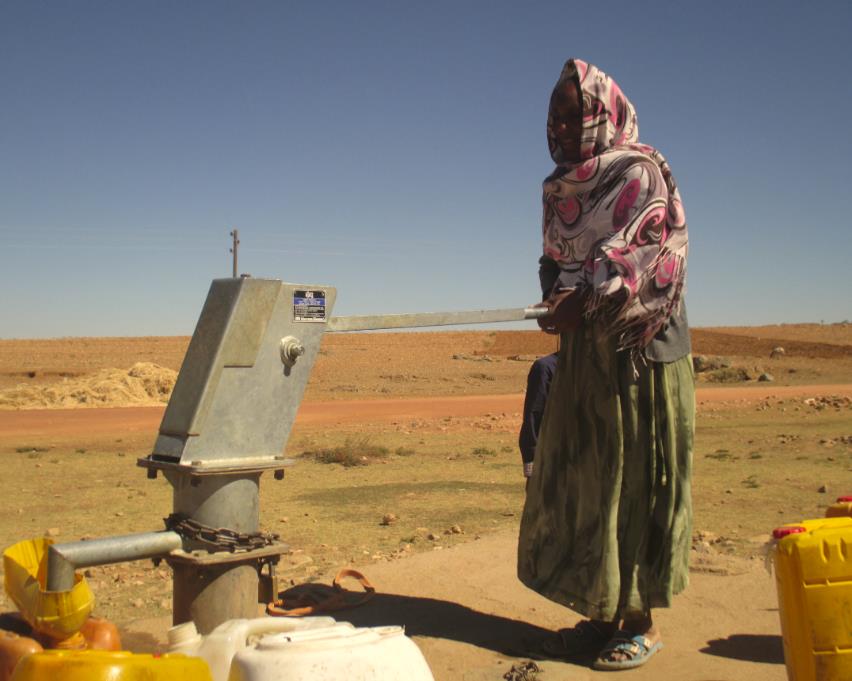
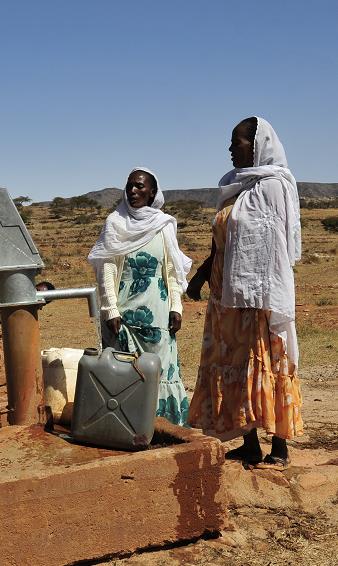
The town of Adi Keyh in Debub can be found about two hour’s drive south of Asmara, Eritrea’s capital city. With a population of over 2,000 people, Adi Keyh sits high in the hills that populate the south of Eritrea and is spread across a few kilometers. These hills were once lush and green and heavily forested, but mankind and a changing climate have depleted them so that they now lie bare and burnt with little by way of shade from the hot sun. The families that live here and in the surrounding villages have seen their traditional grazing grounds disappear with the soil that runs down the hills because there are no trees and undergrowth to hold it in place.
Life in Adi Keyh is hard – people have few natural resources to draw on and weather patterns have become increasingly erratic in recent years, greatly impacting on the sustainability of farming families. To add to the hardship, Adi Keyh has not had a source of clean water in many years since both community water wells, at either end of the town, broke down over the past few years.
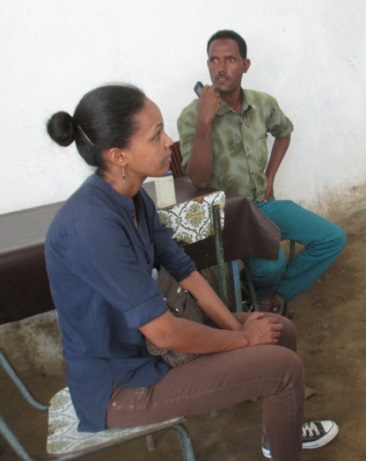
“Lack of access s to clean water is a huge problem in East Africa, where approximately 47% of wells are broken and not in use. This is mainly due to lack of knowledge and resources to repair the wells and buy spare parts,” says Wenghelawit Asrat, Vita’s programme coordinator. “These wells are hand pumps, and have quite a few metal parts which need maintenance, repair and replacement on an ongoing basis. If the people don’t have access to this, they have to look elsewhere for water.”
Vita has undertaken to repair all of the broken community water pumps in Eritrea by the end of 2018. The Sisters of Mercy (Union of Great Britain) were pivotal in ensuring that the town of Adi Keyh and 12 other villages and towns were included in this programme.
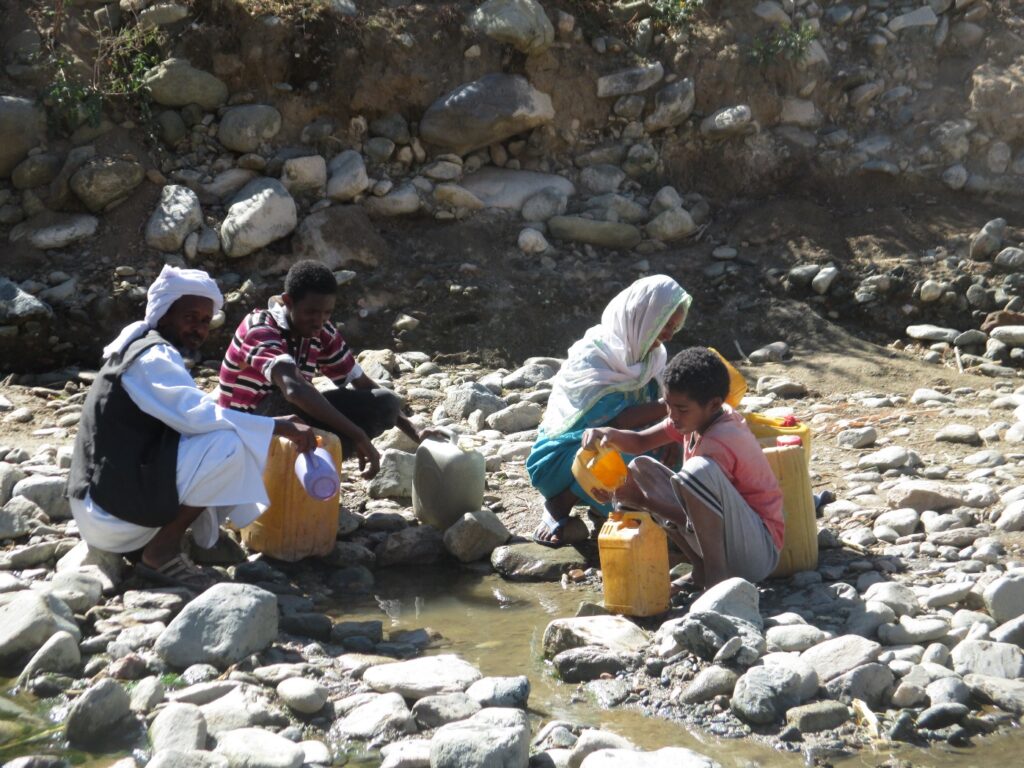
For the last number of years, the local people have had to carry their water from a small stream a few kilometers south of the town. This contaminated source is shared with the local livestock and this has led to a huge rise in water borne diseases. In the Debub region it is thought that dirty water consummation is responsible for 60 – 80 fatalities a year, mostly amongst young children and the elderly.
Fetching water also involves a lengthy and precarious walk with heavy water containers which is a huge burden on the women and the children. For the children it will often interfere with school time, while a woman can spend up to four hours a day carrying water. This time could otherwise be spent earning a living and improving her family’s prospects.
As an added hardship, dirty water needs to be boiled for safety and this involves a lot of extra spending on wood for families with very limited incomes.
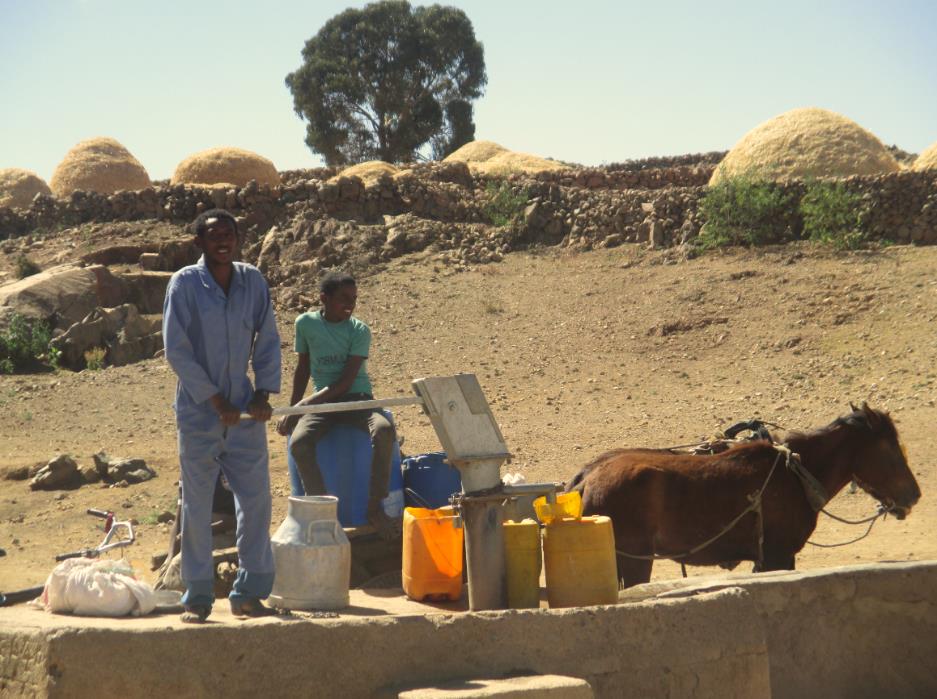
The local village council were delighted to be included in the Vita / Sisters of Mercy UK programme, and immediately set about establishing a Water User Association (WUA) to fundraise a portion of the cost, organise the labour needed and open a bank account.
Vita operates on a ‘hand up, not hand out’ principle, whereby our partner communities contribute to each project based on what is affordable. Sometimes this is in the form of labour, some of the costs or a mixture of both. All programmes are heavily subsidised to ensure access for all as per the Sustainable Development Goals. It also ensures that each community has a strong sense of ownership over the programmes, which is vital for long term sustainability.
The old bores were re-dug and re-lined and new hand pumps were purchased and installed. The old concrete slabs were replaced and the surrounding areas were cleaned up and made suitable for corralling animals away from the pump. The local WUA provided the labour, collecting stones and mixing the concrete while Vita paid for the materials, bought the pumps and the parts and provided the training and expertise where needed. A WASH committee (Water, Sanitation & Hygiene) was set up and they are now responsible for the maintenance and cleanliness of the pump, as well as ensuring that proper protocols are adhered to. The villagers pay a small annual sum that is set aside to cover the costs of future maintenance and spare parts.
“This has changed all of our lives.” says Mehret who lives with her husband’s family in Adi Kyeh near one of the newly rehabilitated water pumps. “I have eight children and am expecting my ninth so having the pump nearby is very important for me. Also my husband is a soldier and away a lot of the time so I must also look after his parents. Not having to carry water for hours every day gives me more time for other things.”
Wenghelawit adds “I think this collaborative approach is an excellent model for development. The people are very involved in the project, they contribute to the costs and construction and they have a structure in place to ensure that the well is sustainable. This gives them a sense of ownership and is a huge move away from more traditional ‘hand out’ models. This partnership between the Sisters of Mercy Union UK, Vita and Adi Kyeh is a great success. The wonderful bonus is that, of course, this clean water does not need to be boiled, so trees don’t need to be cut and burned to achieve this. It’s much better for our local environment and also for the planet in general.”

You May like to watch a short videoabout the Project
Ciara Feehely
Vita (Head of Communications & Marketing)



